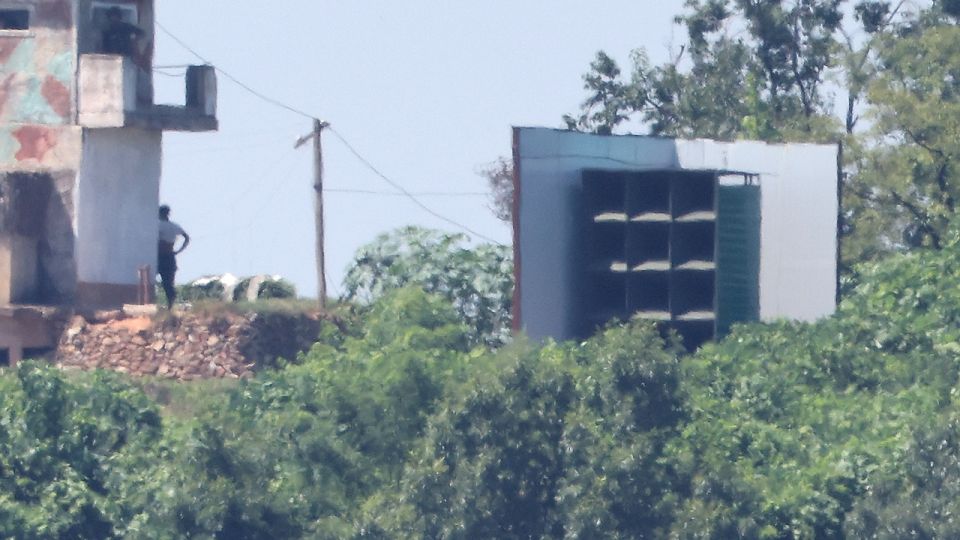August 11, 2025
SEOUL – North Korea’s recent move to dismantle some of its loudspeakers along the border can be interpreted as a sign of Pyongyang seeking alleviation of military tension between the two Koreas, but several risks exist, experts said Sunday.
“North Korea has immediately reacted to South Korea’s decision to dismantle its own loudspeakers targeting the North along the border, and this can be seen as Pyongyang’s intention to avoid further escalation of tension,” Lim Eul-chul, a professor at Kyungnam University’s Institute for Far Eastern Studies, said.
“This is a strategic choice aiming to control the level of inter-Korean tension and conveys the North’s preference towards military tension alleviation on the Korean Peninsula at the moment,” he added.
On Saturday, the South’s military noted that the North had begun dismantling some loudspeakers used to broadcast its propaganda for its regime across the border. The signs came within a week after the South completed the removal of its own “anti-Pyongyang” loudspeakers amid the Lee Jae Myung administration’s efforts to improve inter-Korean relations.
Lim added that the North’s recent reaction to the South’s “preemptive” move to alleviate tensions is expected to define Pyongyang’s stance towards inter-Korean ties.
“This is a reaction to the South’s preemptive action, and it presents a possibility that the North will continue to react whenever the South decides to make such moves to alleviate the tension first,” he said.
Another North Korean expert echoed Lim’s sentiment, saying that the North’s dismantling of its loudspeakers is Pyongyang’s “new way” of dealing with relations with the South.
“It can be interpreted as the North’s new way of dealing with its ties with the South and a passive move towards the Lee administration’s active and preemptive measures,” Yang Moo-jin, president of the University of North Korean Studies in Seoul, said.
But uncertainties exist: the latest exchange in actions lacked a solid communication channel or an agreement on the process, the Seoul-based North Korea expert noted.
Yang believes a lack of “agreements based on face-to-face negotiations, … presents uncertainties and limits to (this new type of inter-Korean exchange).”
“It means that the tension could always escalate again when either the South or the North misinterprets gestures and signs,” he added.
Lim also pointed out that the North’s decision to only partially remove its loudspeakers at the moment means that Pyongyang is seeking to “only cooperate when its conditions are met.” Instead of expressing willingness to fully revive dialogue with the South and cooperate with Seoul, Pyongyang seems to be strategically focusing on short-term outcomes, he added.
Since 1963, both the South and the North have engaged in a low-level military conflict involving loudspeaker broadcasts along the border, following the 1950-53 Korean War, which ended in an armistice, not a truce or a peace treaty. Both sides have repeatedly halted and revived the loudspeaker broadcasts depending on inter-Korean relations.


